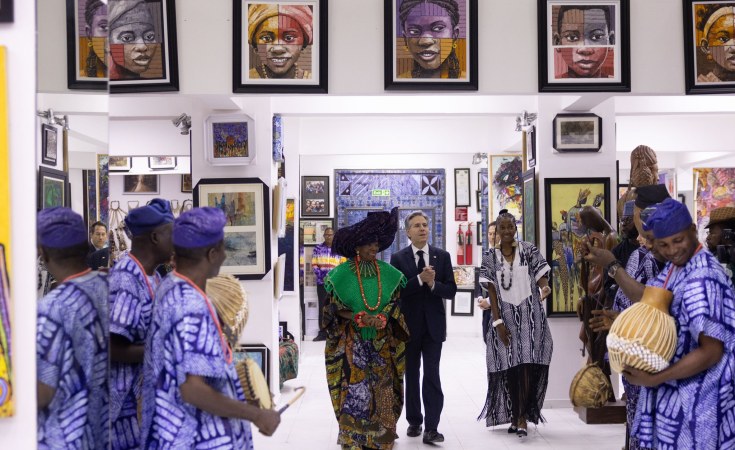Washington, DC — US Secretary of State Antony Blinken's trip to four African countries - Cape Verde, Cote d'Ivoire, Nigeria, and Angola - on January 21-26, 2024, demonstrates just how worried US policymakers are about recent developments in Africa.
Despite the demands on his time from the wars in Ukraine and Gaza, Secretary Blinken obviously knows he has to pay attention to Africa. He and the Biden administration face six overlapping, simultaneous crises in different part of Africa: the Sahel, Nigeria, Sudan, The Horn of Africa (Ethiopia, Eritrea, and Somalia), The Great Lakes Region (DRC, Rwanda, Burundi, and Uganda), and Northern Mozambique.
Washington is looking to make a deal with the putschists in Niger to maintain the US drone base at Agadez in northern Niger; this is Blinken's highest priority. Washington is also anxious to deal with the deteriorating situation in Nigeria; this is Blinken's other major priority. And Washington is competing with China for political, economic, and diplomatic influence in Africa, which is why Blinken will highlight the Lobito Corridor project in Angola, which shows that the US can succeed in the competition with China for economic influence and prestige.
Blinken is right to emphasize that US is doing better on investment and trade these days, while China is doing far worse than generally portrayed. Chinese President Xi has been severely disappointed by the "Belt and Road" strategy, and has directed his government to abandon many current projects in Africa and to cut back on future Chinese plans for investment Africa.
At the same time, the success of the US African Growth and Opportunity Act (AGOA) and other American economic initiatives in Africa - however limited that success might be - shows that the US can compete with China on its own terms.
But the trip also demonstrates - by the omission of any significant initiatives other than pledging $45 million in weaponry and other military assistance to the remaining members of ECOWAS - that the Biden administration is incapable of responding to the challenges it confronts in Africa, at least for the time being.
It also shows that while Biden may still be committed to making a trip to Africa during his term in office, that can only happen if he wins a second term this coming November. So Blinken has to go to Africa instead, even though it distracts him from missions in what the US considers more important parts of the world.
It surely is no coincidence that on 25 January, the publication Semfor revealed that Judd Devermont will leave his post as Senior Director for African Affairs in the US National Security Council by mid-February 2024. Mr. Devermont took office in October 2021 pledging that he would promote a less militaristic US policy toward Africa. He has concluded, it appears, that his efforts have failed and that remaining in office is a pointless waste of his time.
And on 1 February 2024, the Governor of Zamfara state announced the creation of a vigilante force, following a similar action taken by the Governor of Katsina state in October 2024. Even Nigerian state governors have so little confidence in the government's ability to protect the population that they have resorted to arming civilians so they can protect themselves.
That same day, a coalition of 40 civil society groups petitioned Nigerian President Bola Tinubu, expressing concern at the deteriorating security situation and calling upon him to take "actionable steps" to reduce the violence and end human rights abuses by government security forces. Blinken has his work cut out for him in Nigeria, and throughout the rest of the continent, at least until November 2024.
Daniel Volman is the Director of the African Security Research Project in Washington, DC (www.africansecurity.org) and a specialist on US national security policy toward Africa and African security issues.


